We need to do more than just talk about mental health
Content Warning - This post DISCUSSES mental illness (depression, suicide)
Let's do more than talk.
Canada needs to take action on the mental health crisis.
Even before the pandemic, Canada has been experiencing a mental health crisis.
Wait, before we get into it:
The concept of mental health used in the Canadian healthcare system is based on colonial and Western ideas of 'normal' mental well-being. These definitions and treatments are not necessarily designed to serve the diverse needs of communities.
That being said, this post will focus on ways the Canadian government should improve the mental health system and services that it offers to the population so that it better addresses those gaps.
We're in a mental health crisis during a pandemic
We're dealing with the worst on-again-off-again relationship with lockdowns while trying to dodge a virus that's literally everywhere. It's no surprise that for a lot of us, our mental health is in the Bad Place.
In fact, 40% of people in Canada report that their mental health has gotten worse since the pandemic began.
During the pandemic, half of the people in Canada experienced some combination of debilitating stress, depression, or considered suicide or self-harm. This was most common among Gen Zs and folks who make under $40 000/year.




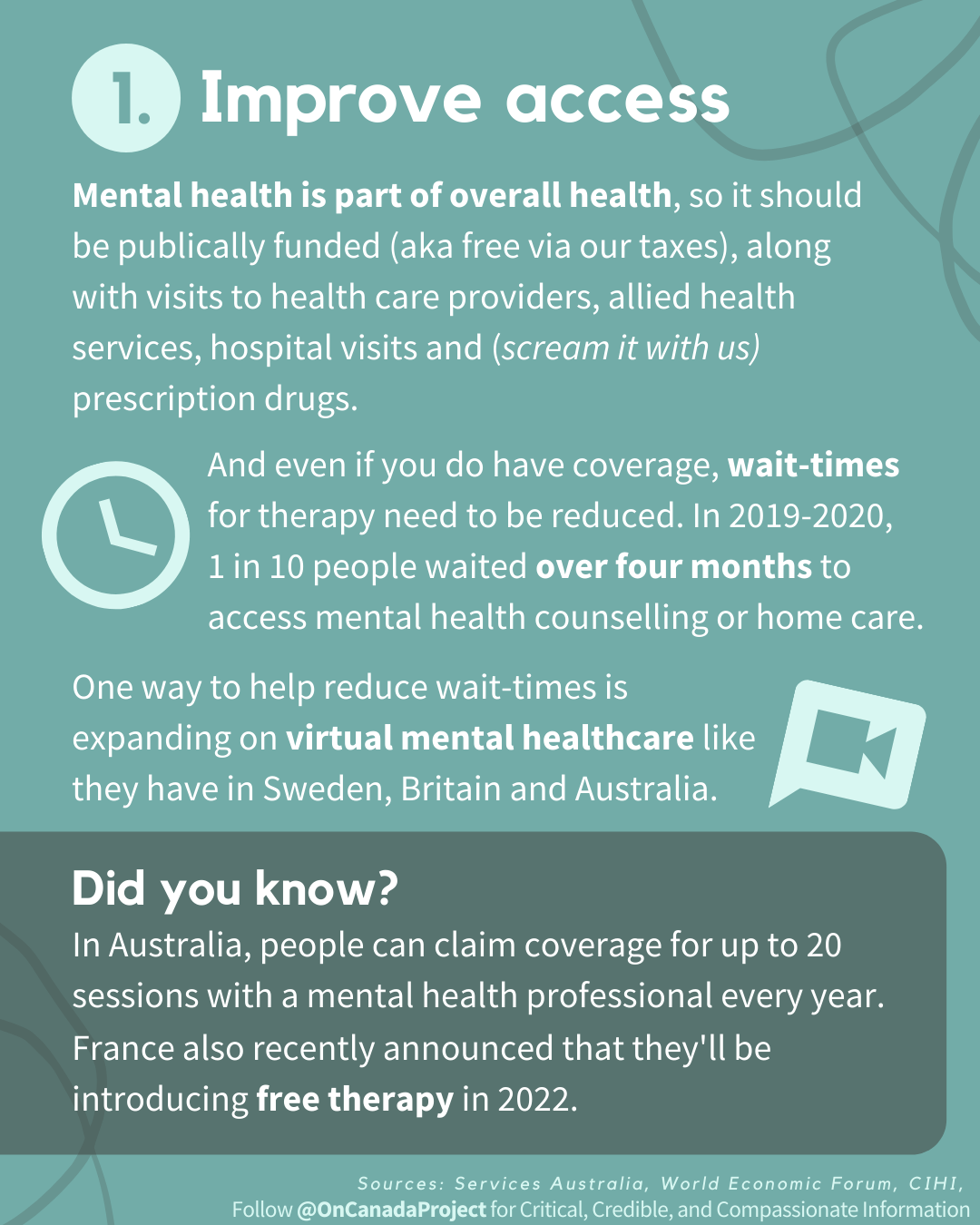
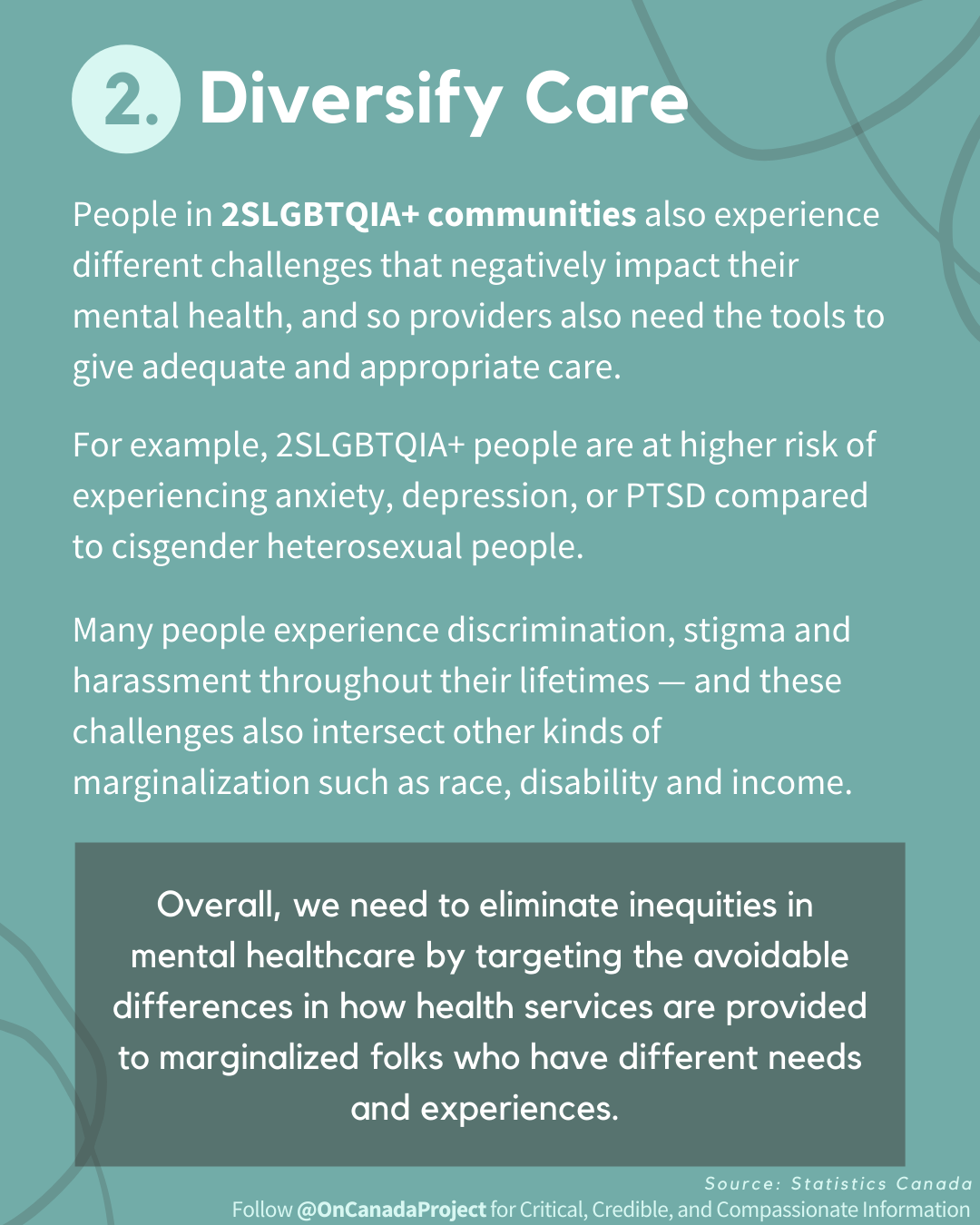
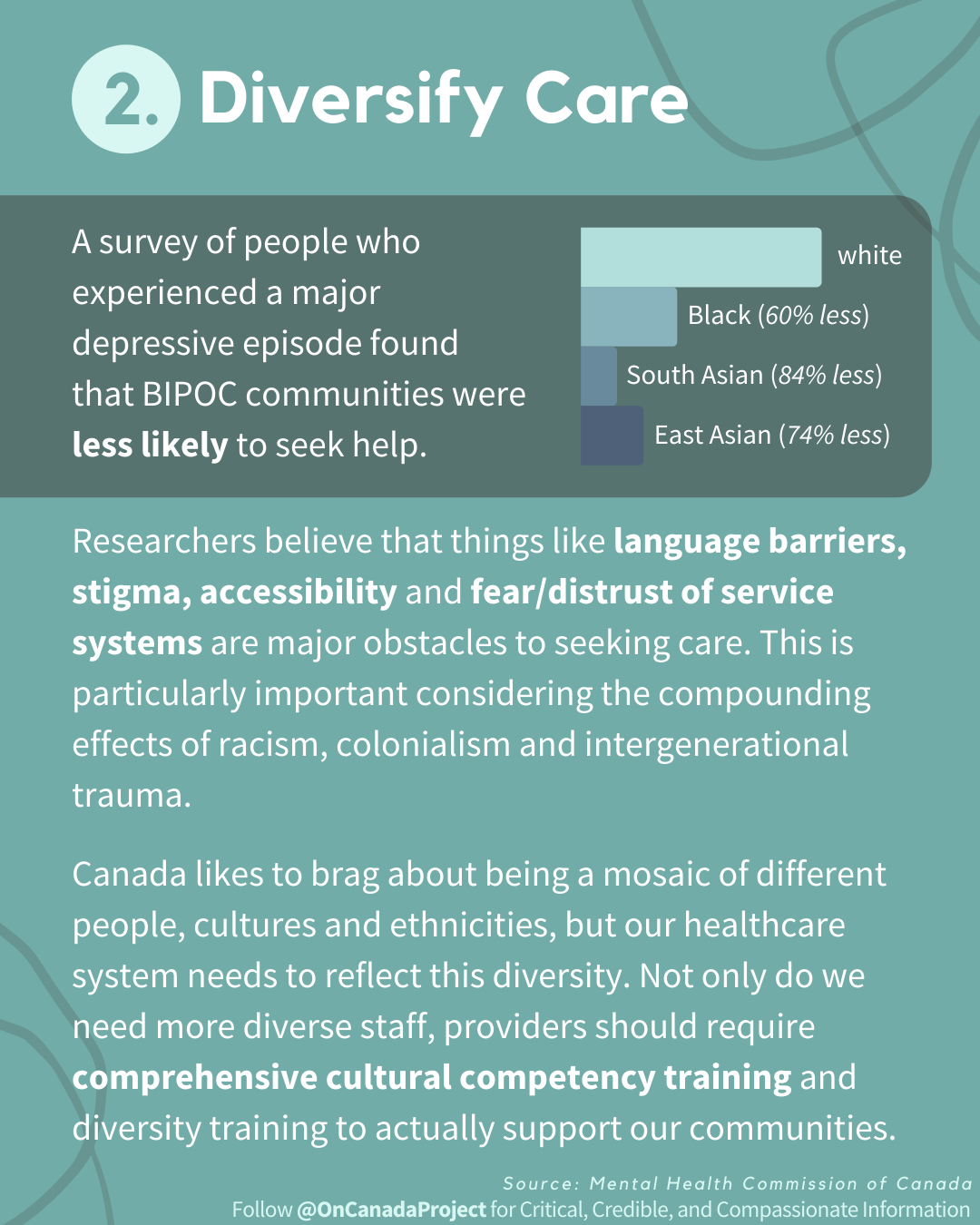
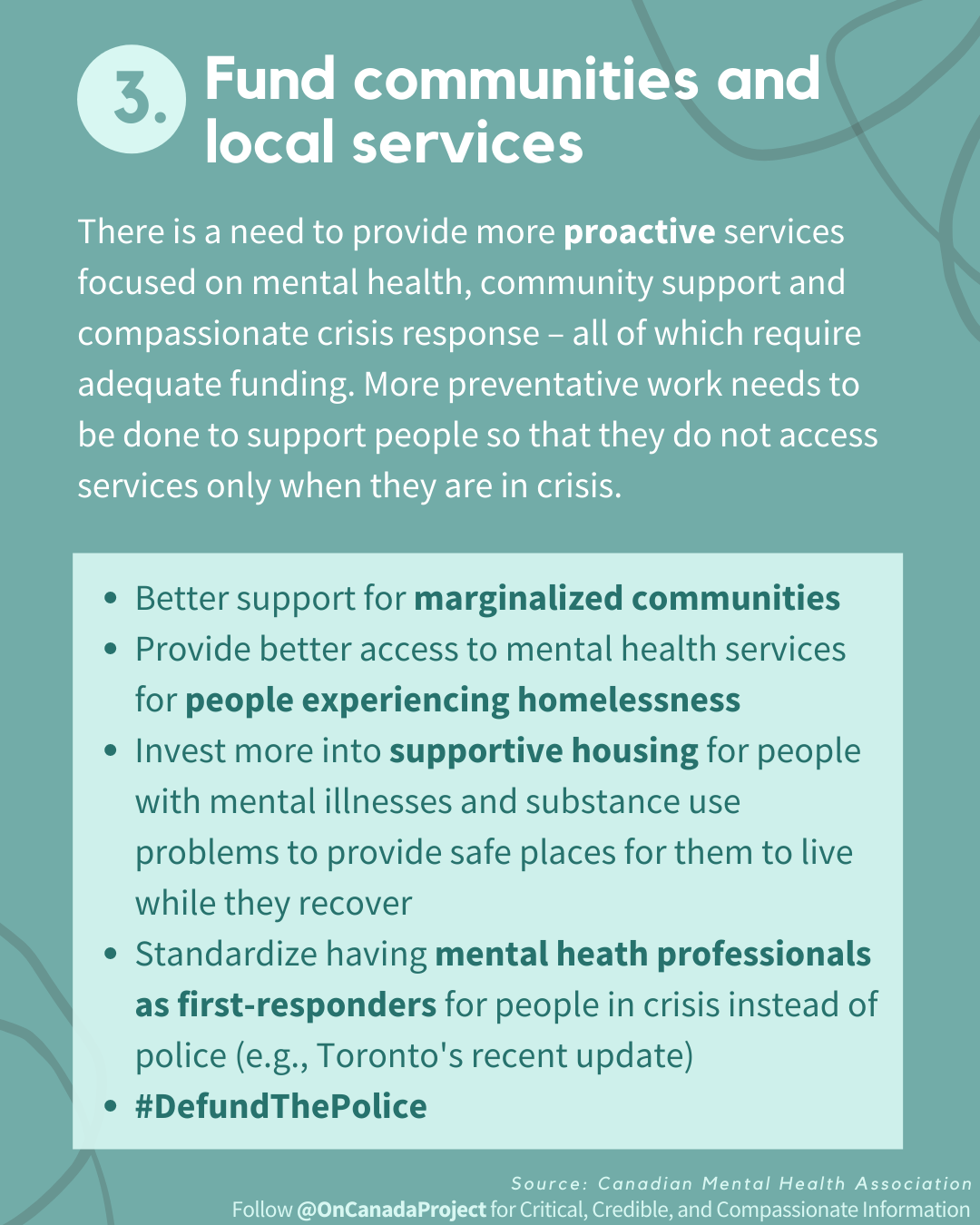
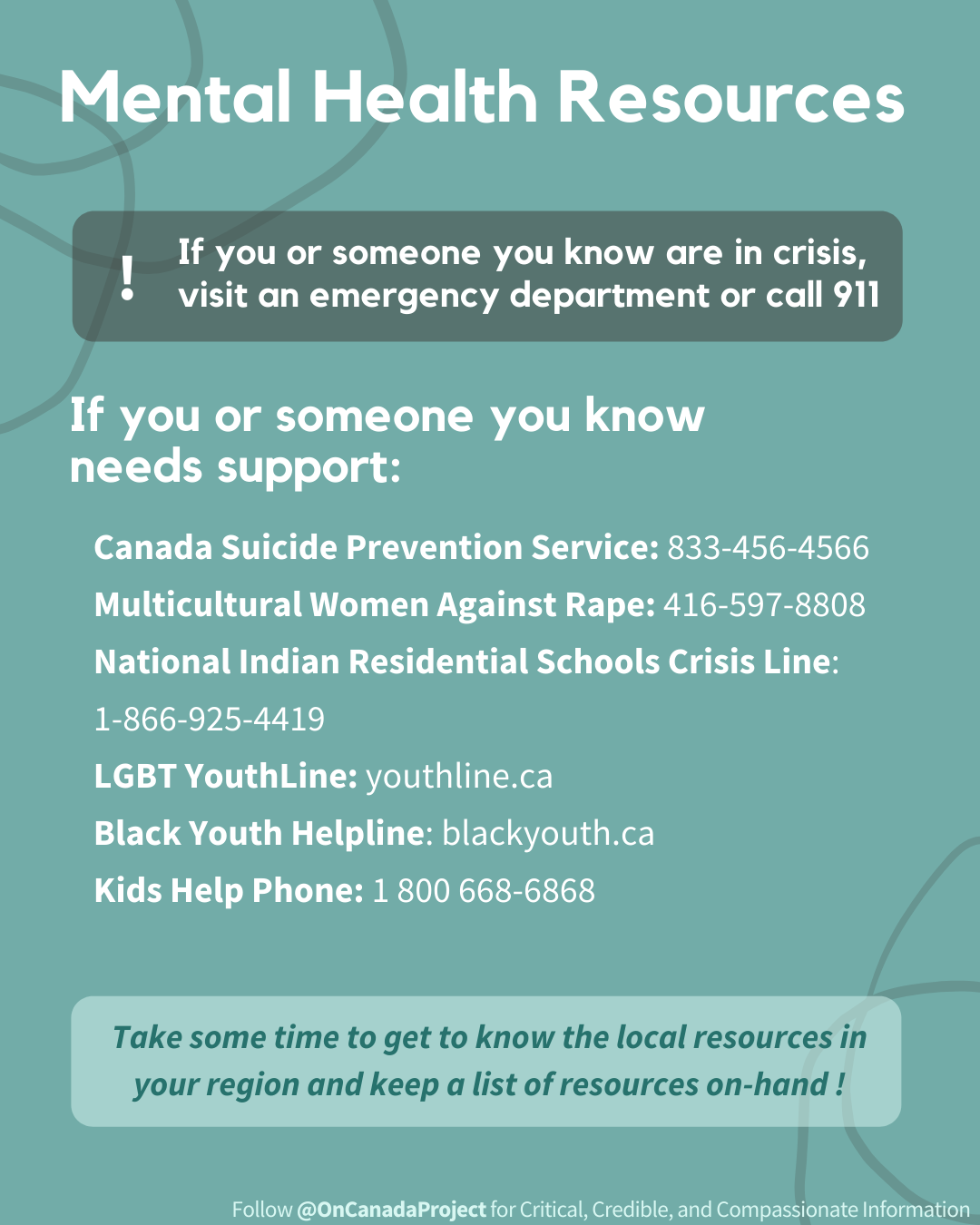
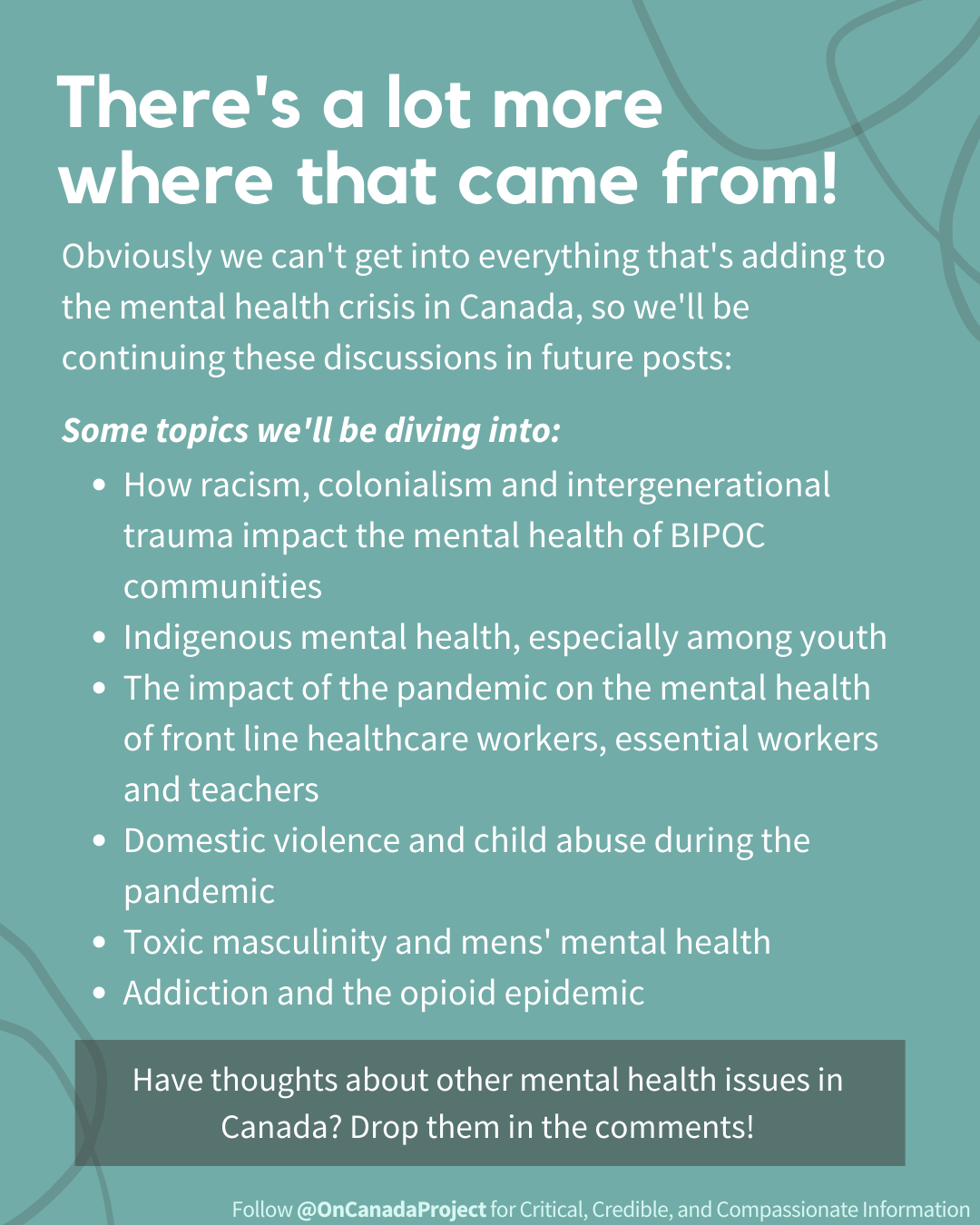
We need less talk and more action
Things have been getting better when it comes to mental health stigma – more and more people (53% in 2021) said they were willing to discuss their mental health with family, professionals or online.
Talking about mental health is an essential first step, but it isn't enough to collectively acknowledge the problem if people can't get the right support they need when they need it. And without breaking the bank to get it.
Canada is a wealthy nation that is hella proud of our publically funded healthcare system, yet for years we've been talking about the mental health crisis without addressing the systemic barriers to solve it.
Here are three ways Canada needs to deal with the mental health crisis
1. Improve access
Mental health is part of overall health, so it should be publically funded (aka free via our taxes), along with visits to health care providers, allied health services, hospital visits and (scream it with us) prescription drugs.
And even if you do have coverage, wait times for therapy need to be reduced. In 2019-2020, 1 in 10 people waited over four months to access mental health counselling or home care.
One way to help reduce wait-times is expanding on virtual mental healthcare like they have in Sweden, Britain and Australia.
Did you know?
In Australia, people can claim coverage for up to 20 sessions with a mental health professional every year.
France also recently announced that they'll be introducing free therapy in 2022.
2. Diversify Care
A survey of people who experienced a major depressive episode found that BIPOC communities were less likely to seek help.
Researchers believe that things like language barriers, stigma, accessibility and fear/distrust of service systems are major obstacles to seeking care. This is particularly important considering the compounding effects of racism, colonialism and intergenerational trauma.
Canada likes to brag about being a mosaic of different people, cultures and ethnicities, but our healthcare system needs to reflect this diversity. Not only do we need more diverse staff, providers should require comprehensive cultural competency training and diversity training to actually support our communities.
People in 2SLGBTQIA+ communities also experience different challenges that negatively impact their mental health, and so providers also need the tools to give adequate and appropriate care.
For example, 2SLGBTQIA+ people are at higher risk of experiencing anxiety, depression, or PTSD compared to cisgender heterosexual people.
Many people experience discrimination, stigma and harassment throughout their lifetimes — and these challenges also intersect other kinds of marginalization such as race, disability and income.
Overall, we need to eliminate inequities in mental healthcare by targeting the avoidable differences in how health services are provided to marginalized folks who have different needs and experiences.
3. Fund communities and local services
There is a need to provide more proactive services focused on mental health, community support and compassionate crisis response – all of which require adequate funding. More preventative work needs to be done to support people so that they do not access services only when they are in crisis.
Better support for marginalized communities
Provide better access to mental health services for people experiencing homelessness
Invest more into supportive housing for people with mental illnesses and substance use problems to provide safe places for them to live while they recover
Standardize having mental heath professionals as first-responders for people in crisis instead of police (e.g., Toronto's recent update)
#DefundThePolice
There's a lot more where that came from!
Obviously we can't get into everything that's adding to the mental health crisis in Canada, so we'll be continuing these discussions in future posts:
Some topics we'll be diving into:
How racism, colonialism and intergenerational trauma impact the mental health of BIPOC communities
Indigenous mental health, especially among youth
The impact of the pandemic on the mental health of front line healthcare workers, essential workers and teachers
Domestic violence and child abuse during the pandemic
Toxic masculinity and mens' mental health
Addiction and the opioid epidemic
Have thoughts about other mental health issues in Canada? Drop them in the comments!
Mental Health Resources
If you or someone you know is in crisis, visit an emergency department or call 911
If you or someone you know needs support:
Canada Suicide Prevention Service: 833-456-4566
Multicultural Women Against Rape: 416-597-8808
National Indian Residential Schools Crisis Line: 1-866-925-4419
LGBT YouthLine: youthline.ca
Black Youth Helpline: blackyouth.ca
Kids Help Phone: 1 800 668-6868
Take some time to get to know the local resources in your region and keep a list of resources on-hand!
Sources: CAMH, Ipsos, Services Australia, World Economic Forum, CIHI, Mental Health Commission of Canada, Statistics Canada, Canadian Mental Health Association

